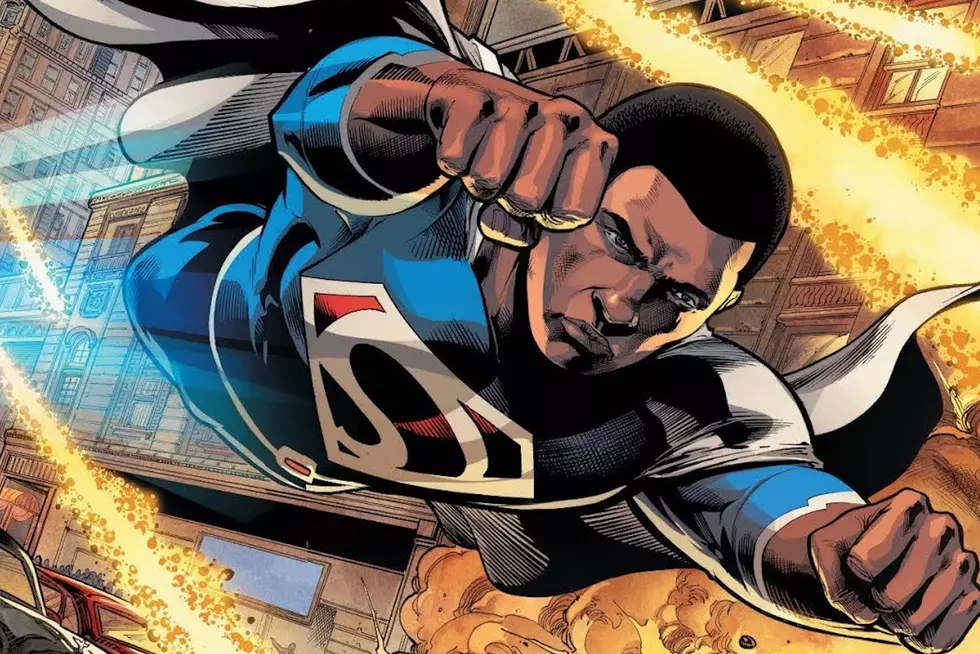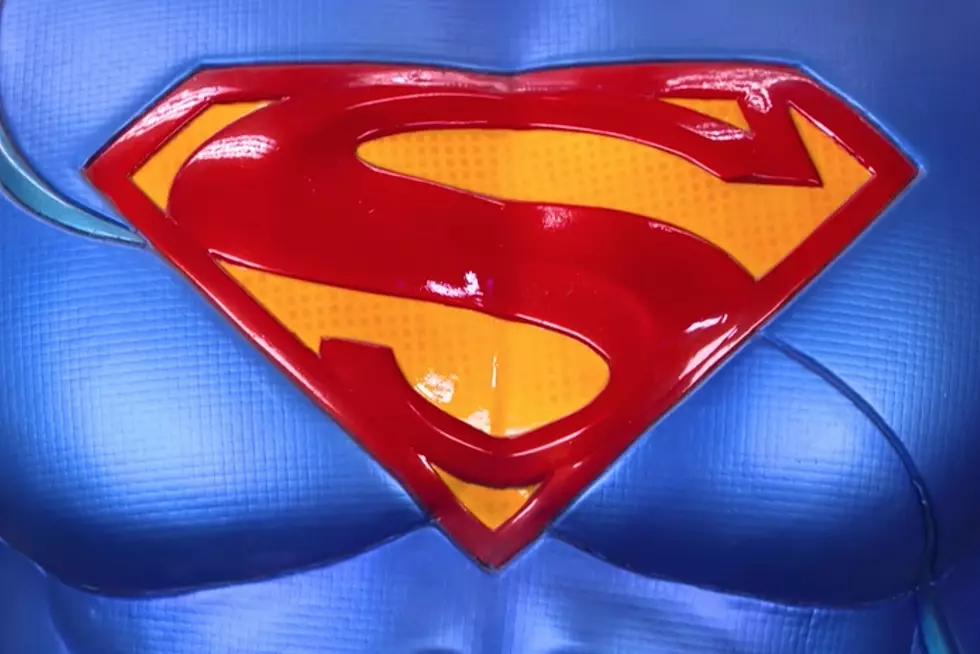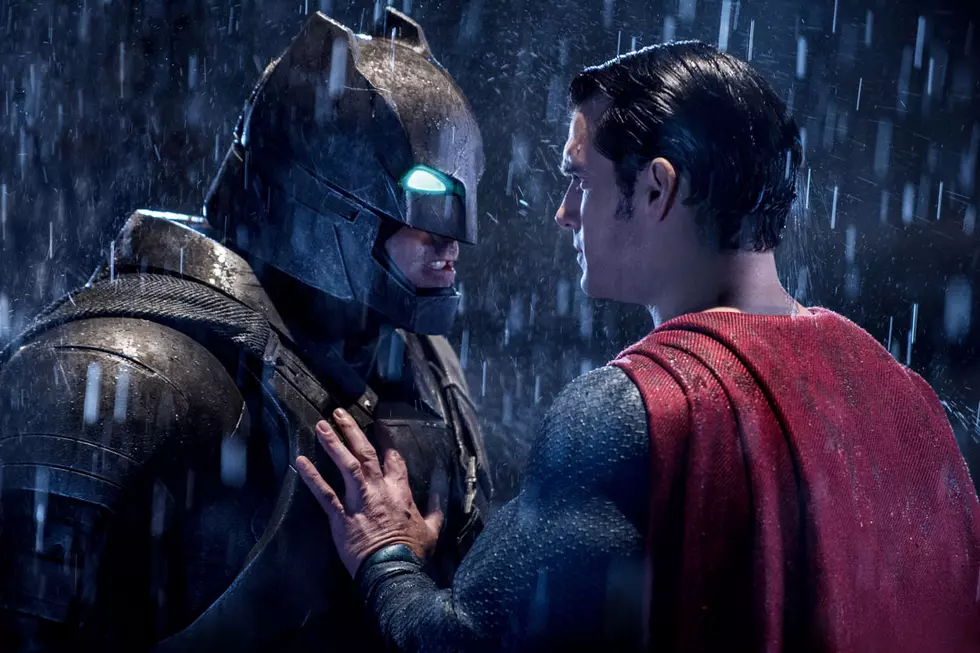
Ask Chris #221: Superman Takes Down The Clan Of The Fiery Cross
Q: What's your favorite example of a comic having an effect on the real world? -- @jamesdeleech
A: You know, a lot of the questions I get for this column, at least the ones I tend to like answering, are the ones that are open to interpretation, and it's fun to pick and choose stories to talk about that back up a particular idea that I have about how something works. This one, though, is one of those questions that's about as close to having one definitive answer as is possible. When you talk about those great times when comics changed the real world, there's really only one choice.
It's when Stetson Kennedy teamed up with Superman to bring down the Ku Klux Klan.
It's a pretty well-known story, to the point where it's been on This American Life and was even featured on an episode of Comedy Central's Drunk History, and I know I've referenced it a couple of times here at ComicsAlliance. If you've never heard it, though, it's an incredible testament to just how much of an impact the power of fiction can have on society.
So let's start with the hero of the piece, Stetson Kennedy. He was born in Jacksonville, Florida in 1916, and as a result, he grew up pretty familiar with the grotesque racism of the Jim Crow era, especially given that he'd travel around to different parts of town selling furniture for his dad's business and once saw an employee of the family subjected to a few particularly vicious slurs by kids in his neighborhood.
Kennedy developed a strong interest in storytelling that led to him to the Works Progress Administration's Federal Writers' Project for his home state, and a job working with folklore, oral history, and ethnic studies in 1937. It was also during that time that the worked with Zora Neale Hurston, who would go on to write Their Eyes Were Watching God, while the two of them traveled around Florida collecting stories. Or at least, that was the idea -- in practice, segregation laws meant that it was illegal for them to travel together, and Hurston couldn't even use the front door when she went to the office.
In other words, Kennedy was someone who understood the power of fiction and who had seen a whole lot of American racism firsthand.
In an origin story moment that you couldn't write any better, Kennedy was kept out of service by a bad back during World War II, and since he couldn't go overseas to fight Nazis, he decided instead to do it at home. Mostly that meant writing about inequalities in the south and policies that were meant to keep black people from voting, but when the war ended, he suddenly found himself in the position to do something a whole lot bigger.
I'm not sure whether it's actually true or just an embellishment that makes things seem more dramatic, but I've seen it written that Kennedy's next move was prompted by a ceremony that the Klan had at the Confederate Memorial at Stone Mountain, Georgia -- a landmark whose original owner had granted a portion to the KKK to use for their "celebrations" -- where they lit a giant cross and announced that, having just got back from fighting a war against a violent, evil, thoroughly racist empire in Europe, they were keen to start up a violent, evil, thoroughly racist empire of their own.
A look through a history book will tell you that they were pretty serious about it, so Kennedy set out to bring them down, which is exactly what he did. Working with a partner who had been an official in the Klan before a change of heart, and with sympathetic federal agents, Kennedy infiltrated the KKK and did what he did best: He gathered up their stories.
The only real problem was what to do with the information once he had it. And that's where the Man of Steel comes in.
This is another part of the story that you probably already know, but it's really impossible to overstate that Superman was overwhelmingly popular in the '40s. His debut in 1938 had kicked off the Golden Age of comics, but within two years, he'd spread to other forms of mass media too, including the wildly popular Adventures of Superman radio show, brought to you by Kellogg's Pep Cereal. It's actually a huge piece of what made Superman Superman -- Jimmy Olsen, Perry White and Kryptonite all originated on the show and became important pieces of the franchise, as did the "Faster than a speeding bullet" opening. While the comics were big -- and they were big, to the tune of millions of copies in circulation -- the radio show was huge.
And one of the key components of that popularity across all media was that for all his power, Superman was a champion of the oppressed. With the exception of a few bits of regrettable wartime propaganda, Superman always stood against racism and fought for truth and justice.
So naturally, Stetson Kennedy figured he'd be a good ally in the fight against the Klan, especially since he'd found that the police tended to be indifferent at best, and members of the Klan at worst. So, wanting to get the information out to as many people as possible, he contacted the producers of The Adventures of Superman to see if they'd be interested in a story where Superman took on the KKK.
The result was "The Clan of the Fiery Cross," a 16-part serial that ran in the summer of 1946.
It wasn't the show's first attempt at dealing with racism -- a few months before, they'd run a story called "The Hate Monger's Organization," where Superman took on a gang of Nazis operating as "The Guardians of America" -- but thanks to Kennedy's research, "Clan of the Fiery Cross" included actual information about the real-life organization. Passwords, practices, secret handshakes and costumes from the Klan all made it into the show.
And that's the genius of it. The actual episodes are unsurprisingly pretty melodramatic -- I'm particularly fond of the episode above, where a kid who's secretly joined up with the Clan of the Fiery Cross talks to his mom and she tells him how utterly disappointed she'd be if her son ever joined up with a bunch of idiots in bedsheets, in a pretty delightful bit of emotional manipulation -- but the show's main contribution was to take away the mystique of what the Klan were doing.
Kennedy wanted to paint them as being every bit as ridiculous as they were dangerous, and that became the theme of the show. A secret society is really only impressive when it's a secret, and once that shroud of mystery is removed and everyone knows that you're wearing a bag on your head and referring to yourself as a Grand Scorpion, it all becomes embarrassing, even if those core beliefs about racial superiority are still festering in your heart.
Which is exactly what happened. In the weeks after "Clan of the Fiery Cross" aired (along with a campaign against intolerance that featured Bud Collyer, the voice of Superman), the Klan's rapid expansion ground to a halt, and even long-time members resigned.
One of them, as mentioned on the This American Life episode about Kennedy, even talked about how he came home from work one day to find that his son had found his Klan hood and was wearing it in the yard, playing the bad guy to the neighbor kid's Superman, and that's when he realized he had to get out. How do you keep doing something once you realize your own kid thinks you're a supervillain who needs to get punched out by the good guys?
Even more damning was the show's climax, where the Clan of the Fiery Cross was revealed to be, at its heart, little more than a bigoted moneymaking scheme that duped a bunch of "the little nobodies who want to believe some other race is inferior so they can feel superior, the jerks who go for that 100% American rot" into paying dues and buying expensive bedsheets to wear, with the leadership more interested in profiting from the base than in any actual beliefs their followers held.
In most places, the Klan became a joke. A violent and hateful joke that continued (and continues) to terrorize people, of course, but a joke nonetheless.
For his part, Kennedy saw his home firebombed, and relocated to France, where he wrote I Rode With The Ku Klux Klan in 1954, doing more to expose the group's secrets and rob them of the obscurity that was one of their greatest weapons. And Superman, as you may have heard, had a pretty lengthy career as well.
The thing that always gets me about this story is how it shows just how important stories are. Kennedy was a man who saw the power in those stories, and he did exactly what the best Superman stories do. He used fiction to create a better reality than the one that he was living in, and then used that to change things for the better. Whether it was through exposing the secrets of an evil organization or just holding up a mirror so they could see how stupid the trappings were, Kennedy and the producers of Adventures of Superman used Superman to make a real change, to inspire people to be better.
Which, when you get down to it, is what Superman always does.
Ask Chris art by Erica Henderson. If you’ve got a question you’d like to see Chris tackle in a future column, just send it to @theisb on Twitter with the hashtag #AskChris.
More From ComicsAlliance









